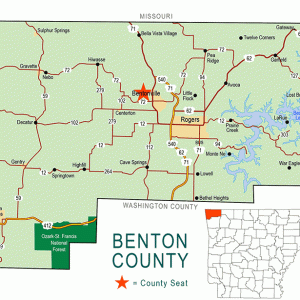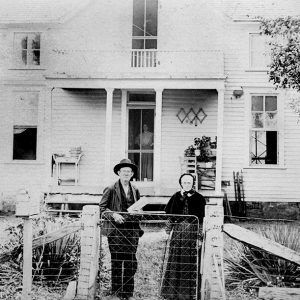calsfoundation@cals.org
Bethel Heights (Benton County)
| Latitude and Longitude: | 36°12’51″N 094°07’46″W |
| Elevation: | 1,348 feet |
| Area: | 2.10 square miles (2020 Census) |
| Population: | 3,015 (2020 Census) |
| Incorporation Date: | August 9, 1967 |
Historical Population as per the U.S. Census:
|
1810 |
1820 |
1830 |
1840 |
1850 |
1860 |
1870 |
1880 |
1890 |
1900 |
|
– |
– |
– |
– |
– |
– |
– |
– |
– |
– |
|
1910 |
1920 |
1930 |
1940 |
1950 |
1960 |
1970 |
1980 |
1990 |
2000 |
|
– |
– |
– |
– |
– |
– |
284 |
296 |
281 |
714 |
|
2010 |
2020 |
|
|
|
|
|
|
|
|
|
2,372 |
3,015 |
|
|
|
|
|
|
|
|
Bethel Heights was a city in southern Benton County, situated on Business Highway 71 between Lowell (Benton County) and Springdale (Washington and Benton counties) just east of Interstate 49. Although the community existed since the 1870s, it was not incorporated until 1967. In 2020, it was annexed by Springdale following a vote in both communities.
Benton County had long been inhabited before European exploration and before the Louisiana Purchase added the area to the United States. Osage from the north hunted in Benton County even after the Louisiana Purchase, until a treaty with the U.S. government moved the tribe west to what is now Oklahoma. The first white settler to claim land in the area that would become Bethel Heights was Nelson Hewitt, who arrived in 1856. He was joined by John Fitzgerald in 1858 and by Thomas Beasley in 1859.
The St. Louis–San Francisco Railway, often called the Frisco, completed a rail line through Benton and Washington counties in 1881 with stops in Lowell and Springdale. By this time, a school had already been established at Bethel Heights. Counted as county school district No. 66, the school was sometimes called Bethel and sometimes Newkirk. In 1877, it served 127 students between the ages of six and twenty-one. No description exists of the original school building, but Benjamin and Elizabeth Newkirk donated land to the school district in 1888 for one dollar an acre for a new school building. That building was also replaced around 1920 by a new two-room schoolhouse. The school continued to operate until the district was consolidated into the Springdale school district in 1948.
Bethel Church of the Nazarene is probably the oldest congregation in Bethel Heights. It was joined in 1941 by a Lutheran congregation, Living Savior Lutheran Church, which continues in the twenty-first century to hold German services one Sunday a month; in some services, up to four languages are used, including Spanish and Portuguese. Bethel Heights also has a Pentecostal church and two non-denominational churches.
To avoid being annexed by Lowell or Springdale, the community of Bethel Heights incorporated as a town in 1967. By 2010, when the population had grown beyond 2,000, Bethel Heights had reincorporated as a second-class city. The city has two parks, which include a walking path and pavilions. Bethel Heights also has a police department and a fire department. In addition to its five churches, the city has more than forty businesses, including a restaurant, a beauty shop, and several automotive businesses and construction businesses. There are also two boat businesses, as Bethel Heights is only five miles from Beaver Lake.
Bethel Heights has never had its own post office; it shares its zip code with parts of Springdale. The city has one property listed on the National Register of Historic Places, the Beasley homestead, which consists of several buildings constructed in the 1920s.
Following a petition drive, the city of Bethel Heights set an August 2020, election to determine whether the community should be annexed to neighboring Springdale, in large part due to the community’s failing wastewater infrastructure. Springdale and Bethel Heights residents voted on August 11, 2020, in support of the annexation.
For additional information:
Jines, Billie. Benton County Schools That Were. Volume 5. Ozark, MO: Dogwood Printing, 1996.
Joenks, Laurinda. “Bethel Heights Certifies Petitions Seeking Annexation.” Arkansas Democrat-Gazette, June 9, 2020, p. 3B.
———. “Bethel Heights’ Annexation on Way to Approval.” Arkansas Democrat-Gazette, August 12, 2020, p. 2B.
———. “Vote Certified; Bethel Heights a City No More.” Arkansas Democrat-Gazette, August 23, 2020, p. 5B.
Steven Teske
Butler Center for Arkansas Studies
 Benton County Map
Benton County Map  Bethel Heights House
Bethel Heights House 



Comments
No comments on this entry yet.